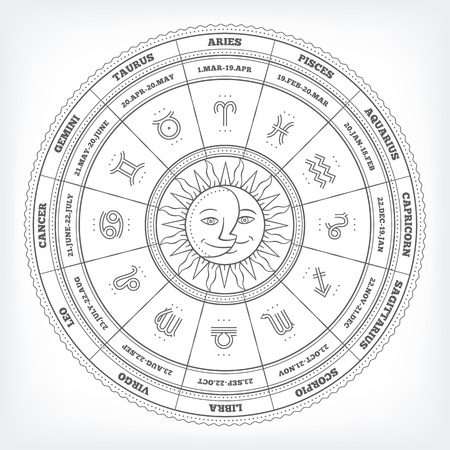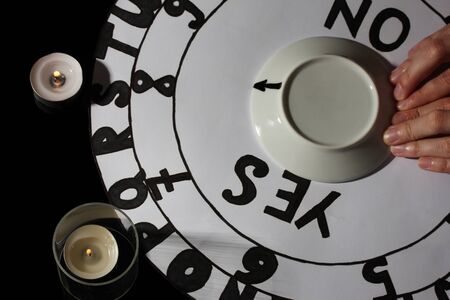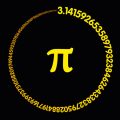Setting the Scene: England in Astrological Tumult
If you thought modern Britain was a bit chaotic, spare a thought for those shivering souls in 17th-century England. This was an era where survival meant dodging not just the plague (deadlier than a dodgy kebab), but also the occasional Great Fire and, for added excitement, a full-blown civil war. If you could get through the week without catching something nasty or being trampled by rampaging Roundheads and Cavaliers, you were doing rather well. The average Londoner’s daily horoscope probably read, “You might step in something unpleasant today – if you’re lucky, it won’t be on fire.” No wonder people flocked to astrologers, desperately hoping the stars would offer better news than the morning broadsheet. In this swirling tumult of disease, disaster, and political drama worthy of an EastEnders Christmas special, one man rose to fame for reading the celestial tea leaves: William Lilly. While most were clutching their rosemary beads or queuing for bread, Lilly was busy charting planetary alignments with all the gravitas of someone picking horses at the races. His knack for predicting calamities made him England’s go-to cosmic agony uncle – because when your city is burning down or Parliament’s in meltdown, who doesn’t want a friendly astrologer telling them Mercury is in retrograde?
2. Who Was William Lilly? A Man Among the Stars (and Among the Alehouses)
Before William Lilly was the toast of London’s star-obsessed intelligentsia, he was just a lad from Leicestershire—probably more familiar with cow dung than horoscopes. Born in 1602, young William started out as the local everyman: think muddy boots, thick Midlands accent, and absolutely no clue hed one day mingle with England’s nobility armed with nothing but a quill, a birth chart, and an impressive collection of mystical robes (one assumes). But fate—or possibly Saturn’s mischief—whisked him away to London, where he swapped turnip fields for taverns, and pig gossip for planetary positions.
From Leicestershire Lad to London Luminary
Lilly’s journey wasn’t your average “boy moves to city and becomes influencer” story. He began as a servant in London, scrubbing floors rather than studying stars. But even among the city’s raucous alehouses and suspiciously greasy pies, William developed a taste for astrology. Some say it was the only way to make sense of London traffic—or why his landlord kept losing his rent money.
The Astrological Ascent: Key Milestones
| Year | Event | Significance |
|---|---|---|
| 1602 | Born in Diseworth, Leicestershire | Started life far from celestial glamour (and decent plumbing) |
| 1620s | Moved to London as a servant | Learned that city life is mostly waiting for payday… or the next plague |
| 1632 | Began serious study of astrology | Saw more stars than after a night at The Dog & Duck pub |
| 1647 | Published “Christian Astrology” | Became instant star (pun intended) among astrologers and the curious alike |
| 1650s-1660s | Counselled politicians, royalty, and anyone with a shilling to spare | Became England’s go-to cosmic consultant (and occasional political scapegoat) |
The Alehouse Oracle: Why Did People Trust Him?
Lilly’s knack for reading both the skies and the room made him wildly popular. He could predict plague outbreaks, fires (looking at you, Great Fire of London), or whether you’d ever get your shoes back from that dodgy cobbler. His client list grew faster than an astrologer’s beard—everyone from merchants to monarchs wanted a peek at their celestial fortunes. And let’s be honest: if someone could predict your love life while downing an ale in Cheapside, you’d listen too.

3. Astrological Fame: Predicting the Fire, Dodging the Rotten Vegetables
If William Lilly had a LinkedIn profile, his top skill would be “Predicting National Disasters (and Occasional Embarrassments).” In 1666, our stargazing hero made his most famous call—he more or less foresaw the Great Fire of London. Naturally, this did wonders for his reputation and absolutely nothing for fire insurance premiums. His prediction, which involved ominous diagrams of burning cityscapes and cryptic astrological gibberish, was later scrutinised by everyone from the King’s men to your nan’s knitting circle. Some said he was a prophet; others were just annoyed that he hadn’t mentioned anything about their missing chickens.
Lilly didn’t always hit the celestial nail on the head, mind you. For every spot-on forecast—like foretelling wars or the odd death of someone slightly important—there were a handful of predictions that fizzled faster than British summer sunshine. Still, in an age when people genuinely believed Saturn was up to no good and Mercury retrograde could ruin your ale, even his misses were met with a level of seriousness usually reserved for tea-time etiquette.
Astrology in 17th century England wasn’t just a parlour game—it was practically a national pastime. Politicians consulted horoscopes before making decisions (as if blaming Mars was more dignified than admitting they had no clue), and ordinary folk devoured Lilly’s almanacs as eagerly as the latest scandal sheet. Whether you loved him, hated him, or just wanted to lob a cabbage at his head during public lectures, there’s no denying that William Lilly made astrology as much a part of English life as drizzle and queueing.
4. Heavens and Heresy: Lilly’s Brush with Authority
If you’ve ever wondered how to make your name infamous in 17th-century England without swapping your head for a pike on London Bridge, William Lilly has the answer: master the stars, but don’t outshine Parliament. Lilly’s astrological predictions were so on point that MPs might have suspected he had a private hotline to the Almighty—or at least an inside man among the cherubim. His prophecies about civil wars, plagues, and general English mayhem were accurate enough to make even Cromwell sweat under his steeple hat.
The Art of Not Getting Locked Up
Lilly wasn’t just reading horoscopes; he was treading the fine line between revered prophet and royal nuisance. Predict something too vague, and you’re dismissed as a charlatan. Too precise, and suddenly you’re “invited” for tea at the Tower of London (spoiler: they don’t serve scones). Here’s how Lilly managed his high-wire act:
| Strategy | Description | Effectiveness (Stars) |
|---|---|---|
| Befriend Both Sides | Lilly gave readings to both Royalists and Parliamentarians—astrological neutrality at its finest. | ⭐⭐⭐⭐ |
| Plausible Deniability | “The stars told me!” is handy when accused of treason—just blame Uranus. | ⭐⭐⭐⭐⭐ |
| Cryptic Language | Writing in riddles kept everyone guessing—and most importantly, kept heads attached. | ⭐⭐⭐ |
| Dramatic Public Apologies | If in trouble, grovel publicly and claim celestial confusion. Works surprisingly well. | ⭐⭐⭐ |
Lilly vs. The Lawmakers
At one memorable point, Parliament summoned him for questioning about his suspiciously spot-on predictions concerning the Great Fire of London. Did he set it? No. Did he see it coming? Absolutely. Did he say, “I told you so”? Only in astrological code no one could quite decipher. And thus, the authorities found themselves caught between prosecuting him for heresy or hiring him as their new PR man.
The Celestial Tightrope Walker’s Legacy
Lilly’s balancing act became legendary—a masterclass in survival, wit, and just enough humility to keep his star-gazing neck intact. Next time you’re tempted to embarrass Parliament with some scandalously accurate predictions, remember: always leave room for creative ambiguity and never underestimate the power of blaming Mercury retrograde.
5. The Lilly Legacy: Astrology’s Staying Power in British Culture
If William Lilly could see the state of astrology today, he might choke on his own star charts—or perhaps just tweet a cryptic meme. From horoscopes in The Sun (the newspaper, not the flaming ball of gas) to TikTok teens prophesying your love life based on Mercury’s mood swings, Britain remains as astrologically bewitched as ever. One has to wonder: is this thanks to Lilly’s mystical mumbo-jumbo, or are we simply addicted to blaming Venus for our poor choices?
The Sun Never Sets on Astrology
Let’s be honest—no British morning is complete without a cuppa and a quick peek at whether you’ll “meet someone tall, dark and handsome” or just get stuck behind a slow walker on Oxford Street. This daily ritual, once reserved for Lilly’s private clientele of worried nobles and plague-terrified peasants, has now trickled down to every Greggs bakery queue. And while 17th-century pamphlets have given way to clickbait and Instagram stories, the British appetite for astrological nonsense is as robust as ever.
Twitter Stars and Cosmic Banter
Lilly could interpret planetary alignments with deadly seriousness, but today’s Twitter astrologers prefer their predictions served with sarcasm and a GIF or two. You’ll find “@AstroBabe_UK” telling you Mars retrograde means it’s okay to ignore emails, and somehow this feels spiritually connected to the days when Lilly was advising Parliament about comets (and probably how to survive another lockdown, 1665-style).
From Wishy-Washy Wisdom to National Pastime
The real magic of Lilly’s legacy isn’t so much that he got everything right (spoiler: he didn’t), but that his blend of cosmic caution and confident guesswork became a peculiarly British tradition. We still consult the stars before big decisions—like picking lottery numbers or choosing the best time to leave Wetherspoons—and blame Mercury retrograde for everything else. In the end, whether through tabloid horoscopes or viral memes, William Lilly’s spirit lives on: slightly confused, deeply amused, and always ready with an answer that means absolutely everything… and nothing at all.


